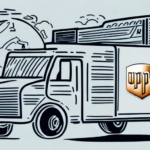Preparing for UPS Peak Season: Ensuring Your Business is Ready
The holiday season is approaching, and for businesses that rely on UPS for their shipping needs, it's crucial to start preparing for UPS peak season. This period can be a stressful time for any business, but with the right strategy in place, you can ensure that your operations run smoothly and efficiently during this busy time. In this article, we'll discuss everything you need to know about preparing for UPS peak season, from understanding its importance to identifying the right UPS services for your business.
Understanding the Importance of UPS Peak Season for Your Business
Peak season is the busiest time of the year for UPS. During this period, package volumes increase significantly as millions of people order gifts online, resulting in shipments to loved ones worldwide. For businesses, peak season is a critical time to meet customer demand and generate revenues. However, it also presents unique challenges, such as increased competition, higher shipping costs, and potential delays in deliveries.
Challenges During Peak Season
- Increased competition among businesses to meet customer expectations.
- Higher shipping costs due to elevated demand for UPS services.
- Potential delays in deliveries, impacting customer satisfaction.
Strategies to Overcome Challenges
- Plan inventory well in advance to avoid stockouts and fulfillment delays.
- Communicate transparently with customers about shipping times and potential delays.
- Consider alternative shipping options, such as multiple carriers or expedited shipping services.
Analyzing Current Trends and Predictions for UPS Peak Season
To effectively prepare for peak season, it's essential to analyze current trends and predictions. Recent studies indicate that the peak season is expected to be even busier than previous years, driven by a sustained increase in e-commerce activities.
Impact of E-Commerce Growth
The surge in online shopping, accelerated by the ongoing digital transformation, has led to a significant increase in package volume. According to the Statista e-commerce report, online sales are projected to grow by over 15% during the peak season, contributing to higher shipping demands.
Sustainability Efforts
UPS has been actively working to reduce its carbon footprint and promote eco-friendly practices. This year, they are expected to continue implementing sustainable packaging and delivery methods. Aligning your business with these sustainability efforts not only benefits the environment but also appeals to customers who prioritize eco-friendly practices.
Choosing the Right UPS Services for Your Business
Selecting the appropriate UPS services is pivotal in ensuring efficient operations during peak season. UPS offers a variety of services tailored to different business needs, whether you're a small enterprise or a large corporation.
Popular UPS Services
- UPS Ground: Cost-effective for domestic shipping with reliable delivery times.
- UPS Next Day Air: Ideal for urgent shipments requiring next-day delivery.
- UPS Worldwide Express: Suitable for international shipments needing fast and secure delivery.
Specialized UPS Services
If your business handles specific types of products, UPS offers specialized services:
- UPS Temperature True: Provides temperature-controlled transportation for perishable goods.
- UPS Hazmat Express: Designed for shipping hazardous materials safely and compliantly.
Technology Solutions
UPS provides various technology solutions to streamline shipping and logistics:
- UPS WorldShip: A software solution for managing shipping processes, including label printing and inventory management.
- UPS My Choice: Allows customers to track and manage their shipments, receive delivery alerts, and make routing changes if necessary.
Streamlining Operations and Order Fulfillment During Peak Season
Efficient order fulfillment is essential during peak season to ensure timely deliveries and maintain customer satisfaction. Implementing streamlined operations can help reduce errors and expedite the fulfillment process.
Adopting Automation Tools
Utilize automation tools for order processing to minimize manual errors and speed up operations. Automated systems can handle large volumes of orders more efficiently, ensuring that each order is processed accurately and promptly.
Optimizing Packing Processes
Optimize your packing process by standardizing packaging materials and methods. This can reduce packing time and ensure consistency in package quality, which helps in preventing damages during transit.
Real-Time Shipment Tracking
Implement real-time shipment tracking to monitor the status of each order. This allows you to promptly address any issues that may arise and keep customers informed about their orders' progress.
Effective Communication Channels
Maintain clear communication channels with your customers by sending automated order confirmations, providing tracking information, and promptly responding to inquiries. This fosters trust and enhances the overall customer experience.
Optimizing Inventory Management
Effective inventory management is crucial to meet the increased demand during peak season. Proper inventory strategies can help you avoid stockouts and overstocks, ensuring that you have the right products available when needed.
Demand Forecasting
Use demand forecasting tools to predict sales trends and adjust your inventory levels accordingly. Accurate forecasting helps you anticipate the required stock levels, reducing the risk of stockouts.
Inventory Systems: FIFO and FEFO
- FIFO (First In, First Out): Ensures that older inventory is sold first, reducing the risk of product obsolescence.
- FEFO (First Expired, First Out): Particularly useful for perishable goods, ensuring that products with the earliest expiration dates are sold first.
Just-In-Time (JIT) Inventory
Implementing a Just-In-Time inventory system allows you to order products only when they are needed, minimizing excess inventory and reducing storage costs.
Regular Inventory Reviews
Conduct regular reviews of your inventory levels to identify slow-moving products and adjust your ordering patterns. This helps in maintaining optimal inventory levels and reducing unnecessary costs.
Enhancing Customer Experience
Enhancing customer experience is vital during peak season, as it can lead to increased customer loyalty and repeat business. Effective communication and personalized support play significant roles in improving the customer journey.
Proactive Communication
Use UPS tracking tools to provide customers with real-time updates and alerts about their orders. Proactive communication helps manage customer expectations and reduces anxiety related to order delays.
Personalized Interactions
Address customers by their names and tailor your communication to their specific needs and preferences. Personalized interactions make customers feel valued and enhance their overall experience.
Comprehensive Customer Support
Offer multiple support channels, such as email, chat, and phone, and ensure that your support team is well-trained to handle inquiries and resolve issues efficiently. Prompt and effective support can significantly improve customer satisfaction.
Transparency and Honesty
Be transparent about any issues or delays with orders. Providing clear and honest information helps build trust and allows you to manage customer expectations effectively.
Securing Your Shipments
Ensuring the security of your shipments during transit is essential to prevent losses, damages, and delays. Implementing robust security measures safeguards your packages and maintains your business reputation.
High-Quality Packaging
Use high-quality packaging materials to protect your products during transit. Sturdy packaging reduces the risk of damage and ensures that items arrive in good condition.
Shipment Insurance
Insure your packages against loss or damage. UPS offers various insurance options that provide financial protection for your shipments, giving you peace of mind.
Advanced Security Features
Leverage UPS's advanced security features, such as UPS Access Point locations and UPS My Choice for Business, to enhance the security of your shipments.
Real-Time Tracking with GPS
Utilize GPS technology for real-time tracking of your shipments. This allows you to monitor the location and status of your packages continuously, enabling you to respond swiftly to any transit issues.
Tamper-Evident Packaging
Consider using tamper-evident packaging to provide visible evidence of any unauthorized access to your shipments. This adds an extra layer of security and deters tampering.
Managing Costs: Budgeting and Optimizing Shipping Expenses
Peak season can significantly impact your shipping costs due to the high demand for UPS services. Implementing effective cost management strategies can help you control expenses and maintain profitability.
Budgeting for Peak Season
Develop a detailed budget that accounts for increased shipping volumes and potential cost escalations. Allocating sufficient funds for peak season expenses ensures that your business can handle the surge without financial strain.
Negotiating with UPS for Better Pricing
Engage in negotiations with UPS to secure better pricing based on your shipping volume and long-term partnership. Leveraging your relationship with UPS can lead to favorable rates during peak season.
Optimizing Packaging
Use appropriately sized and weighted packaging materials to avoid dimensional weight charges. Efficient packaging design not only reduces shipping costs but also minimizes material waste.
Eco-Friendly Packaging Solutions
Adopt eco-friendly packaging materials, which can often be more cost-effective and appeal to environmentally conscious customers. Sustainable packaging reduces waste and can lead to long-term cost savings.
Utilizing UPS Loyalty Programs
Take advantage of UPS loyalty programs, such as UPS Rewards, to earn benefits and discounts that can lower your overall shipping expenses.
Monitoring Performance: Measuring KPIs and Evaluating Success
To assess the effectiveness of your peak season strategies, it's essential to monitor performance through key performance indicators (KPIs). Regularly tracking these metrics helps identify areas for improvement and ensures that your business objectives are met.
Key Performance Indicators (KPIs)
- Order Fulfillment Time: The average time taken to process and ship an order.
- Delivery Time: The duration from shipment to delivery at the customer's doorstep.
- Customer Satisfaction: Measured through surveys and feedback, indicating overall customer happiness.
- Return Rates: The percentage of orders returned by customers, reflecting product or service quality.
Data-Driven Decision Making
Use the insights gained from KPI tracking to make informed decisions. For example, if delivery times are longer than expected, investigate the causes and implement solutions to improve efficiency.
Continuous Improvement
Regularly review performance data to identify trends and areas for enhancement. Implementing continuous improvement practices ensures that your business remains competitive and responsive to customer needs.
Preparing for Contingencies: Dealing with Unexpected Situations
Despite meticulous planning, unexpected situations and disruptions can occur during peak season. Having a robust contingency plan ensures that your business can swiftly adapt and continue operations smoothly.
Backup Suppliers and Carriers
Establish relationships with backup suppliers and carriers to mitigate the impact of potential disruptions with UPS. Having alternative options ensures that you can maintain shipping operations even if your primary carrier faces issues.
Emergency Response Team
Set up an emergency response team tasked with handling unexpected problems. This team can coordinate efforts to resolve issues promptly, minimizing downtime and maintaining customer satisfaction.
Regular Testing of Contingency Plans
Conduct regular drills and tests of your contingency plans to ensure their effectiveness. Testing helps identify any gaps or weaknesses in your plans, allowing you to make necessary adjustments proactively.
Risk Assessment
Perform a comprehensive risk assessment to identify potential threats to your peak season operations. Understanding these risks enables you to develop strategies to prevent or mitigate their impact.
Learning from Experience: Improving Your Strategy for Future Peak Seasons
After the peak season concludes, it's important to reflect on your performance and identify areas for improvement. Learning from your experiences ensures that your business becomes more resilient and efficient in future peak seasons.
Post-Mortem Analysis
Conduct a thorough post-mortem analysis of your peak season activities. Assess what worked well and what didn't, and document these insights to inform future strategies.
Gathering Feedback
Collect feedback from customers and employees to gain diverse perspectives on your peak season operations. Customer feedback highlights areas impacting satisfaction, while employee feedback can reveal internal process improvements.
Implementing Improvements
Based on your analysis and feedback, implement changes to enhance your peak season strategy. This could involve adopting new technologies, refining processes, or adjusting inventory management practices.
Continuous Learning
Stay updated with industry trends and best practices to ensure that your business remains competitive. Engaging in continuous learning helps you adapt to changing market conditions and customer expectations.
By thoroughly preparing for UPS peak season using these strategies, your business can navigate the challenges and capitalize on the opportunities, ensuring a successful and profitable holiday period.






















